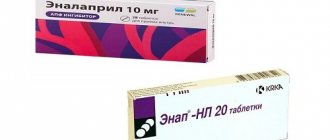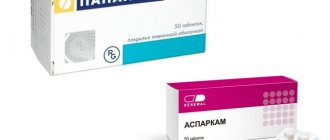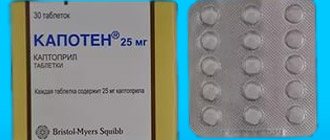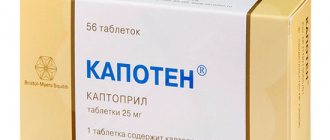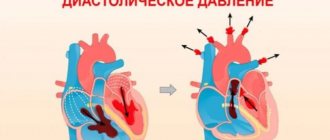Hypertension is one of the serious diseases, the consequences of which are heart attacks and strokes. For long-term treatment of a terrible disease, therapists and cardiologists often prescribe drugs of the ACE inhibitor class.
The first medicine among representatives of this group was captopril. The substance was obtained in 1975 in the USA by the Squibb laboratory.
The global biopharmaceutical company Bristol - Myers Squibb from the USA opened its representative office in our country in 1993.
ACE inhibitor drugs are conventionally divided according to their chemical composition. The division is divided into 4 classes and depends on the chemical compound in the molecule of the substance:
- sulfhydryl;
- hydroxamic;
- phosphinyl;
- carboxyalkyl.
Why is there a question of choosing tablets?
There are dozens of antihypertensive drugs on the pharmaceutical market based on the same active substance. According to official instructions, the drugs have a similar effect, composition, and dosage. At the same time, attending physicians prescribe different pills to patients with the same diagnoses.
The choice of therapy is influenced by factors such as the severity of the underlying disease, a history of concomitant chronic pathologies of internal organs, and age. Changing the prescribed drug on your own creates a high risk of side effects.
Adaptation of the body to the new components of the tablets can take from 5-7 days to several weeks, months and is accompanied by a persistent increase in blood pressure.
If there is a need to change medications, this process is carried out under the supervision of a doctor with regular blood pressure measurements (3-5 times a day). The patient must also do blood tests - general clinical and biochemical to determine the electrolytes of calcium, potassium, chloride, sodium.
Chemical composition of Capoten and Captopril
Captopril is an active substance of synthetic origin, on the basis of which antihypertensive drugs are made. It is a white powder in the form of microcrystals with a faint sulfur odor.
Capoten and Captopril are the same medicine from the group of ACE inhibitors, chemical compounds for lowering blood pressure, treatment and prevention of chronic heart and kidney failure. Affects an extracellular enzyme that regulates blood pressure.
When choosing an anesthetic, each patient should be careful, as they have many side effects and contraindications. Tramadol is one of the effective drugs, but in case of individual intolerance, it is better to replace it with analogues that are not inferior in their effect on the body. Read more in the article: “how to replace tramadol for severe pain.”
Captopril tablets are the cheapest option available to all social classes. Preferential categories of patients receive the drug in social pharmacies free of charge according to a prescription prescribed by a physician.
Kapoten is a trademark (commercial name). Produced on the basis of captopril. − chemical and pharmaceutical plant in Staraya Kupavna, Moscow region, Russia. Auxiliary components in the composition of the drugs:
- cellulose - stabilizer;
- lactose - filler;
- stearic acid - forms the structure;
- starch is a filler for tablet forms.
Different manufacturers may use other additional substances - povidone (a detoxifier, complexing agent), colloidal silicon dioxide (promotes rapid absorption), calcium stearate (ensures tablets are smooth and easy to swallow).
Patient reviews of Capoten and Captopril
Oleg, 52 years old, Irkutsk: “I have experience with hypertension, so I’m always on the alert. I've been using Kapoten for three years now. Thanks to it, the pressure quickly decreases. Even half a tablet is enough. As a last resort, after half an hour I take the second part. It is best to dissolve, as practice has shown. And if you drink it with water, it acts more slowly.”
Marianna, 42 years old, Omsk: “The pressure rises periodically. I try to do without pills as much as possible. But last year, due to frequent travel and changes in climate zones, I suffered for several days with a hypertensive crisis. There was nothing I could do to reduce the pressure. I remembered that Captopril was once recommended. 2 tablets - and after 40 minutes the pressure began to decrease. The next day she was fine. Now I keep Captopril in my medicine cabinet.”
How do the drugs work?
Capoten and Captopril belong to the same pharmacological group - ACE inhibitor. Medicinal properties:
Advertising:
- hypotensive - lowers blood pressure;
- cardioprotective - prevents myocardial hypertrophy, significantly reduces the risk of developing cardiovascular complications, improves the prognosis of the disease;
- vasodilating - dilates blood vessels, increasing their lumen, reduces the tone of the walls;
- natriuretic - reduces the load on the myocardium, improves coronary blood supply.
The main substance enhances the activity of a group of specific plasma proteins that regulate the blood coagulation system (prevent clotting) and blood pressure. Under the influence of captopril, biologically active substances are released that dilate blood vessels, preventing increased stress on the heart muscle.
The hypotensive property begins to act after 15-60 minutes. after ingestion. The maximum activity of the substance is observed after 1-1.5 hours and lasts up to 6-12 hours.
In patients with hypertension, Capoten and Captopril reduce afterload with cardiac function and peripheral vascular resistance. In patients with heart failure, resistance to physical activity increases, general condition improves, life expectancy increases, night sleep and emotional status are normalized. By increasing the diameter of large arteries, it prevents the progression of renal failure, diabetic nephropathy, and the development of cardiovascular complications.
When infected with viruses, it is recommended to use drugs whose active ingredients are aimed at stimulating the immune system and destroying pathogenic microorganisms. Read more in the article: “list of cheap analogues of Kagocel”.
Capoten or Captopril: purposes and contraindications
What is the difference in the action of the drugs and how Capoten differs from Captopril when prescribed depends on several factors. In essence, this is the same tool, there are no fundamental differences.
Advertising:
If a person has mild or moderate hypertension, systemic Captopril is prescribed. If chronic heart failure develops due to hypertension, it is better to take Capoten. Its improved chemical formula does not cause significant side effects; the tablets are well tolerated by patients of all ages. General indications:
- hypertonic disease;
- emergency care for hypertensive crisis;
- chronic heart failure - as part of complex treatment together with diuretics (diuretics), digitalis preparations (digitalis), β-blockers;
- the first day after acute myocardial infarction, provided the general condition is stable (treatment lasts no more than 4 weeks);
- long-term prevention of heart failure at the initial stage of left ventricular dysfunction, when there are no clinical symptoms;
- diabetic nephropathy (kidney damage in diabetes mellitus with impaired glomerular filtration).
Captopril-based products are prescribed from the age of 18. Absolute contraindications include pregnancy and lactation, high sensitivity to individual components, a history of dangerous forms of allergies. Medicines should not be prescribed for severe functional disorders of the kidneys, liver, aortic stenosis, or kidney transplantation.
special instructions
Taking the drug during pregnancy is excluded during the 2nd and 3rd trimester and is undesirable at the initial stage. Therefore, on the eve of planning or immediately after pregnancy is detected, you should switch to other medications in consultation with your doctor. During breastfeeding, the use of the product is completely excluded.
During therapy with Captopril, the ability to drive a car, as well as certain types of activities, may decrease. The onset of such effects depends on the dosage and individual characteristics of the body.
Release form and dosage
Kapoten (25 mg) - white tablets (cream shade is allowed) with a specific odor. The shape is square, convex, with rounded edges. There is a cross-shaped notch on one side.
Advertising:
Captopril (25 mg) - round white tablets with a flat surface, chamfered (cut corners), one or two lines.
For medications to be more effective, they are swallowed on an empty stomach, an hour before meals. You can drink a small amount of liquid at room temperature. Initially, a minimum dose is prescribed, then it is gradually increased (over several weeks), observing the body’s reaction and the general condition of the patient.
Captopril is most often prescribed to treat hypertension. The initial dosage is 12.5 mg 2 times a day at regular intervals. After 2-4 weeks, the dose is gradually increased. Patients with moderate arterial hypertension are advised to take 25 mg 2 times a day. The daily dose should not exceed 50 mg. In severe forms of hypertension, the maximum daily dose is increased to 150 mg. In this case, treatment also begins with 12.5 mg once.
It is the same?
When studying the instructions for Capoten and Captopril, one gets the feeling that these are two identical drugs. Each consists of an active component – captopril. Both medications are used for:
- different degrees of hypertension and arterial hypertension;
- cardiac pathology:
- after a myocardial infarction in case of disturbances in the functioning of the left ventricle;
- diabetic nephropathy (changes in the blood vessels of the kidneys, decreased filtration function of the kidneys, the onset of renal failure).
The release form of the medicines is tablets of 25 and 50 mg. With this dosage, it is convenient for the attending physician to make a prescription.
Take the drug 1 hour before meals.
The medicine is not crushed or chewed. Take the tablets with plenty of water. Both drugs act for a short time.
Increasing the dose does not affect the medicinal characteristics of the substance. But there may be unwanted side effects, which are mentioned above. To enhance the effect, you need to put the tablet under the tongue or combine it with diuretics. Or use the combined drug Capozide – 50.
50% of the substance is excreted by the kidneys in the first 4 hours.
Only the doctor decides whether to interrupt or stop taking the medication.
Both drugs:
- prevent the development of disorders in blood vessels and the heart;
- reduce blood pressure within 30 minutes;
- do not cause pathology of male potency;
- pharmacokinetic parameters remain unchanged at any age.
The trade name “Kapoten” is patented with an appropriate markup. Capoten is manufactured in the USA by the Squibb company and its representative office in Moscow. Captopril is produced by Russian and Indian pharmaceutical companies and in the countries of the former Soviet Union.
Capoten and Captopril are two medications similar in composition, purposes, properties, possible complications, but from different manufacturers.
Use in hazardous conditions
If an uncomplicated hypertensive crisis occurs, the patient needs to take Capoten correctly. To achieve a quick therapeutic effect, it is better to place 1 tablet under the tongue. When absorbed, the active substance quickly penetrates the systemic bloodstream and begins to act. After complete resorption, you need to measure blood pressure and monitor your heart rate (pulse) every hour. If the pressure has not decreased within half an hour, take 1 tablet again.
It is strictly prohibited to exceed the daily dose of 50 mg; if there is no effect after 2 tablets, intravenous administration of other antihypertensive drugs is prescribed.
For chronic heart failure, the initial dosage is 6.25-12.5 mg in the morning and evening. Then increase to 15-150 mg per day (depending on the severity of the condition and individual tolerance to the chemical).
Advertising:
The first day after myocardial infarction - test dose of 6.25 mg. If the dynamics are positive, take 12.5 mg after 2 hours, and 25 mg after 12 hours. On the second day and the entire subsequent month, take 100 mg, divided into two doses, morning and evening.
For left ventricular dysfunction - 6.25 mg once every day. On the second day - 12.5 mg 3 times. From day 3 and for several weeks - 1 tablet. 3 times a day. The maximum permissible dose for severe forms is 2 tablets. 2-3 times a day.
Hypertensive crisis. Emergency care methods.
Hypertensive crisis is a dangerous complication of hypertension that requires emergency care. Every person suffering from hypertension must remember that a hypertensive crisis can occur at almost any time. Therefore, not only all hypertensive patients, but also their loved ones should know how to provide first aid in case of a sharp increase in blood pressure. Hypertensive crisis is a significant, sudden increase in blood pressure with neurovascular and humoral disorders. The occurrence of hypertensive crises is facilitated by acute neuropsychic stress, excessive alcohol consumption, sudden changes in weather, withdrawal of antihypertensive drugs, etc.
There are hypertensive crisis types I and II and complicated.
Type I hypertensive crisis develops quickly, a sharp headache, dizziness, nausea, flashing before the eyes appear, and vomiting may occur. Patients are excited, feel a feeling of heat, trembling throughout the body. Red spots appear on the skin of the neck, face, and sometimes chest. The skin feels damp to the touch. Increased heart rate and a feeling of heaviness in the chest may occur. Tachycardia is noted. Blood pressure is increased, mainly systolic (up to 200 mm Hg and above). Often the crisis ends with excessive urination.
Type II hypertensive crisis often develops in patients with stage II-III hypertension due to insufficiently effective treatment or disruption of lifestyle. Symptoms of a crisis develop more slowly, but very intensely. The headache worsens over the course of several hours. Nausea, vomiting, lethargy appear, vision and hearing deteriorate. The pulse is tense, but not rapid; Blood pressure is sharply increased, predominantly diastolic (up to 140-160 mm Hg).
A complicated hypertensive crisis can occur in the cerebral, coronary or asthmatic variant. In contrast to an uncomplicated hypertensive crisis, in complicated versions of the crisis, acute coronary insufficiency, acute left ventricular failure (cardiac asthma, pulmonary edema), and acute cerebrovascular accident (hypertensive encephalopathy, transient cerebrovascular accident or stroke) can develop against the background of high blood pressure.
If a hypertensive crisis develops, especially a complicated one, it is necessary to call an ambulance.
First aid for a hypertensive crisis consists of immediately taking the following set of measures.
Provide the patient with complete rest. It is contraindicated for him to walk or engage in any physical activity; he needs to be placed in a comfortable semi-sitting position with the help of pillows. If the attack occurred on the street, you need to place folded clothes and other available means under his back. The head should always be higher than the level of the body to prevent increased blood flow and reduce the load on the blood vessels of the brain.
Reduce the brightness of the lighting near the patient and, if possible, ensure maximum silence and the absence of external stimuli. Those around you should behave calmly and not give in to panic, as nervousness is instantly transmitted to the patient.
Since a crisis makes breathing difficult, it is necessary to unbutton tight clothing, loosen your collar, scarf, tie, etc. If the patient is indoors, then you need to provide him with a flow of fresh air, but it is important to ensure that he does not catch a cold.
The victim’s legs need to be warmed well: apply a heating pad, a plastic bottle with hot water to them, you can put mustard plasters on the calf muscles.
Check with the patient whether he suffers from high blood pressure, what medications the doctor has prescribed for him to lower it, and give him this medicine. If the pressure does not decrease within an hour, the drug must be taken again, but care must be taken not to reduce the pressure too much - this can provoke loss of consciousness and further complicate the patient’s condition, especially in the elderly.
If it is impossible to give the patient his usual medicine or if he has not previously taken antihypertensive drugs at all, he can be given a Nifedipine 10 mg tablet (but only if he does not have severe tachycardia and angina). The drug effectively reduces blood pressure. If there is heart disease or information about the patient’s intolerance to nifedipine, the drug can be replaced with captopril 12.5-25 mg; it normalizes blood pressure, protects the heart and prevents the development of nephropathy. In addition, unlike nifedipine, captopril does not cause drowsiness, dizziness and tachycardia. In case of hypertensive crisis of the first type, it is advisable to use anaprilin 40 mg orally or sublingually in crushed form. For type 2 hypertensive crisis, diuretics are used, for example, furosemide 20-40 mg.
It is advisable to give the patient 40 drops of Corvalol to relieve anxiety, panic and fear of death, which usually affects a person in a state of hypertensive crisis. Instead of Corvalol, valocordin, tincture of valerian or motherwort are suitable.
For heart pain, give the patient validol or nitroglycerin, but the latter must be used very carefully: it dilates blood vessels and can provoke collapse.
If possible, you should organize blood pressure monitoring, record tonometer readings, pulse and breathing rates every 15-20 minutes until the doctor arrives.
Some patients mistakenly believe that quickly lowering blood pressure to normal levels will help quickly get rid of the symptoms accompanying a hypertensive crisis. Under no circumstances should you sharply reduce blood pressure; this can lead to collapse, accompanied by loss of consciousness. In severe cases, this can lead to the development of ischemic changes in the brain and other organs as a result of depletion of blood flow.
Health care workers stop a hypertensive crisis, guided by medical protocol. It describes the standard of care for each specific disease. Patients with an intractable or complicated hypertensive crisis, as well as patients with an uncomplicated but new-onset hypertensive crisis, after providing them with emergency medical care, should be hospitalized in a cardiology or therapeutic department.
Side effects of antihypertensive drugs
According to numerous observations and studies in clinical practice, the difference between Capoten and Captopril lies in tolerability. Capoten has minimal negative effects on the body. It is better tolerated by older people and patients with chronic diseases of vital organs.
Side effects of Capoten (appear only in 3% of cases):
- dry cough, sore throat;
- drying of the oral mucosa;
- rapid pulse;
- dizziness;
- rash on the body.
Negative phenomena when taking Captopril often occur due to non-compliance with treatment regimens and regular overdose. The consequences of incorrect dosing can cause the following dangerous conditions:
Advertising:
- cardiogenic shock, up to cardiac arrest;
- dry cough, pneumonia, bronchospasm leading to suffocation;
- vomiting due to stomach irritation, the appearance of ulcers on the mucous membrane, pain in the epigastric region, inflammation of the pancreas;
- bile stagnation, jaundice, liver inflammation;
- violation of the quantitative and qualitative composition of blood;
- increasing the acidity of the body’s internal environments;
- sleep disturbance, muscle pain, blurred vision.
Mental disorders are observed - psycho-emotional stress, stress, depression, tearfulness. There have been cases of the development of drug-induced anorexia - complete lack of appetite, irreversible changes in metabolism, sudden weight loss.
Side effects
When taking Catopril, side effects may occur from different organ systems - nervous, circulatory, digestive and others. Main manifestations:
- sleep disorders;
- drowsiness;
- pancytopenia;
- problems with taste (reversible);
- nausea, vomiting;
- pain, heaviness in the abdomen;
- diarrhea;
- dizziness;
- dyspnea;
- feeling of dry mouth;
- ulcer of the stomach walls;
- constipation.
The following manifestations are much less common:
- anorexia;
- confusion;
- depressive states;
- headache;
- heartbeat disturbance;
- exacerbation of autoimmune diseases;
- rhinitis;
- bronchospasm;
- eosinophilic pneumonia;
- pancreatitis;
- angioedema;
- nephrotic syndrome;
- impotence;
- febrile conditions.
Attention!
In case of overdose, shock, stupor, bradycardia, and symptoms of renal failure may occur. In this case, urgent gastric lavage and administration of activated charcoal are indicated (30 minutes after the Captopril tablet). In case of emergency, you should seek emergency help.
Compatibility with other drugs
Capoten and Captopril can be prescribed together with other drugs to lower blood pressure. For heart attacks, the use of drugs with Nitroglycerin is allowed, subject to a minimum dosage. Patients with hypertension are prescribed diuretics as part of complex treatment. Diuretics in large doses reduce the volume of circulating blood and can provoke persistent hypotension. Strong alcoholic drinks cause vasoconstriction. Concomitant use of alcohol with cardiovascular drugs causes serious consequences - persistent hypertension, vascular insufficiency, heart attack, risk of sudden death.
Concomitant use with antipsychotics and antidepressants increases the risk of developing orthostatic collapse - insufficient blood flow to the brain due to low blood pressure. Adrenaline, Ephedrine, Norepinephrine reduce the effectiveness of captopril. Psychotropic drugs for the treatment of manic states, when taken simultaneously with antihypertensive drugs, increase the toxic effect on the myocardium.
Contraindications for use
In some cases, taking the drug is excluded:
- pregnancy period (2nd and 3rd trimester);
- GW period (entirely);
- angioedema;
- hypersensitivity, individual intolerance to captopril or excipients;
- simultaneous use with the drug "Aliskiren" (should be excluded by people suffering from diabetes or having renal failure).
Analogues of Capoten and Captopril
Drugs with similar effects may differ in the form of release and the active substance on the basis of which the medicine is produced. But all drugs belong to the group of drugs for the treatment of diseases of the cardiovascular system. They have one code in the anatomical-therapeutic-chemical classification - ATC-C.
| № | Drug name | Active substance | Manufacturer | Price |
| 1 | Andipal (mild form of hypertension) | dibazol, analgin, phenobarbital, papaverine | Russia | 9-21 rub. |
| 2 | Corinfar (arterial hypertension, chronic persistent angina) | nifedipine | Israel Germany Croatia | 57-102 rub. |
| 3 | Lisinopril (hypertension, chronic heart failure, acute heart attack) | lisinopril dihydrate | Russia Hungary Israel Croatia | 19-180 rub. |
| 4 | Moxonidine (arterial hypertension) | moxonidine | Russia | 86-589 rub. |
| 5 | Physiotens (arterial hypertension) | moxonidine | Germany | 583-670 rub. |
| 6 | Enalapril-Akos (hypertension, chronic heart failure) | enalapril | Russia | 15-101 rub. |
| 7 | Perindopril Sandoz (blood pressure, heart failure, prevention of complications of coronary artery disease) | perindopril | Slovenia | 351-410 rub. |
Some substitutes are more effective in lowering blood pressure. This is due to their prolonged action. Imported drugs are taken once a day, which eliminates missed doses and violations of the treatment regimen (elderly patients often forget to take a pill at the right time if prescribed 2-3 times a day).
The choice in favor of Capoten or Captopril should be determined by the attending physician - therapist, cardiologist. Uncontrolled or self-treatment with drugs that lower blood pressure can lead to serious consequences - myocardial infarction, death.
Differences between drugs
The excipients used to make pharmaceuticals for stabilizing blood pressure differ in composition, albeit slightly. Captopril contains polyvinylpyrolidone, a water-soluble polymer that is used as a surface coating. Due to fewer additional components, Capoten causes fewer side effects. These include: weakness, drowsiness, dizziness, drying of the mucous membranes of the nasopharynx, skin rash and anemia - with long-term use.
Captopril has many more side effects. In addition to the already listed signs of intolerance, the following were noted: numbness of the tongue, impaired swallowing function, tachycardia, abdominal pain and diarrhea, impaired sense of taste. Immediately after stopping taking the drug, the condition is not restored - the drug has a prolonged effect. Sometimes you have to seek help from a doctor.
But you still have to choose which is better, Capoten or Captopril, even when you have a history of polyvalent allergies. There is an opinion that the difference in fillers does not affect the effectiveness. In addition, various pharmaceutical companies change the formula of additional components.
Interesting ! Official studies have proven that cellulose accelerates the absorption and assimilation of the active compound. But manufacturers often reduce the amount of this substance at the expense of other components.
There is another difference - the price. Captopril is 4-5 times cheaper. The cost of a package (40 tablets) is 12-60 rubles, depending on the manufacturer. Kapoten is a patented product, and packaging is not priced at less than 200-250 rubles. Many patients believe that a good drug cannot be cheap, and prefer the latter.
